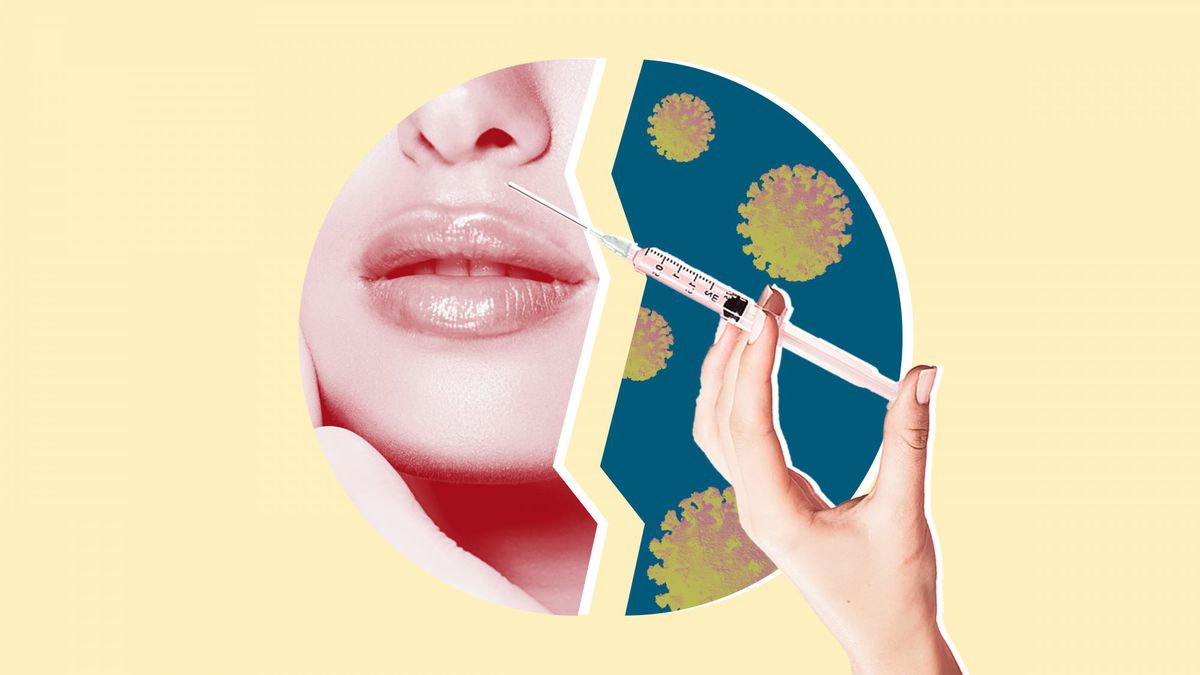Lasix without prescription mastercard accepted
The Moderna COVID-19 vaccine, which was given emergency use authorization in the US on December 18, may cause some side effects in people who have facial fillers, the US Food and Drug Administration (FDA) has reported.
At the meeting of the advisory panel—known as the Vaccines and Related Biological Products Advisory Committee (VRBPAC)—on December 17, FDA medical officer Rachel Zhang reported that two people developed facial swelling after vaccination during Moderna's phase 3 trial. One person, a 46-year-old female, had dermal fillers injected about six months before getting the vaccine. The other, a 51-year-old female, had undergone the same procedure two weeks before vaccination.
According to STAT, which live-blogged the meeting, a third person who took part in the Moderna trial developed lip angioedema (swelling) about two days after vaccination. Zhang said the person had received prior dermal filler injections in the lips, and had reported a "similar reaction after a previous influenza vaccine."
In its presentation document for the meeting, the FDA included the facial swelling in the "Related Serious Adverse Event" category. But how serious is it, really?
"This is a very rare side effect, and it's very treatable with antihistamines and prednisone (a type of steroid)," board-certified dermatologist Debra Jaliman, MD, who has a private practice in Manhattan, New York City, tells Health. In all three cases reported by the FDA, the swelling was localized and either resolved itself, without intervention or after simple treatment.
Purvi Parikh, MD, an allergist and immunologist at NYU Langone Health, who is part of the Allergy & Asthma Network, says we don't know the exact mechanism causing this response, but doctors believe it is an inflammatory reaction. "A filler is a foreign body and when your immune system is switching on due to the vaccine it would make sense that areas that have foreign bodies that aren't normally in your body would also have inflammation—this is because your immune system is designed to counteract any foreign substance," Dr. Parikh tells Health.
And it's not only the COVID-19 vaccine that might trigger this reaction. "Viruses like the common cold, influenza, etc., are known to trigger swelling—again, this is because your immune system is being activated," Dr. Parikh explains. "And if you are allergic to a medication, this may trigger a similar response in your fillers."
It can also happen with other types of vaccines. "This concept has been reported before and is not unique to the COVID-19 vaccine," dermatologist and Mohs surgeon Tanya Nino, MD, melanoma program director at Providence St. Joseph Hospital in Orange County, California, tells Health. Zhang said the FDA team carried out a literature review and found earlier reports where people with dermal filler injections reacted to vaccinations with temporary facial swelling. However, it doesn't appear to have been reported with the Pfizer vaccine, and it's not clear why, because the two vaccines are almost identical. Both are made using a newer technology called messenger RNA (mRNA), and work by encoding a portion of the spike protein found on the surface of SARS-CoV-2, the virus that causes COVID-19, per the Centers for Disease Control and Prevention (CDC).
"It may simply be related to the patient population selected in the clinical trials," Dr. Nino says. "At this time it is unclear and may need more research to determine."
While dermal filler patients should be aware of the possibility of localized swelling in response to the Moderna COVID-19 vaccine, it's important to remember that these cases are rare and the effects are easily treatable. All patients should consider the benefits of receiving the vaccine along with the reported risks, and speak to their health care provider if they have any particular concerns. "This shouldn't stop anyone from getting the vaccine—or from getting facial filler," Dr. Jaliman says.
If patients who have had facial fillers notice any swelling at the site of their filler injection, they should notify their doctor, Dr. Nino says. "It is likely that some individuals have a genetic predisposition to forming this type of immune reaction—it's not guaranteed to occur in everyone who has had fillers," she adds.
The information in this story is accurate as of press time. However, as the situation surrounding COVID-19 continues to evolve, it's possible that some data have changed since publication. While Health is trying to keep our stories as up-to-date as possible, we also encourage readers to stay informed on news and recommendations for their own communities by using the CDC, WHO, and their local public health department as resources.
Source: Read Full Article
